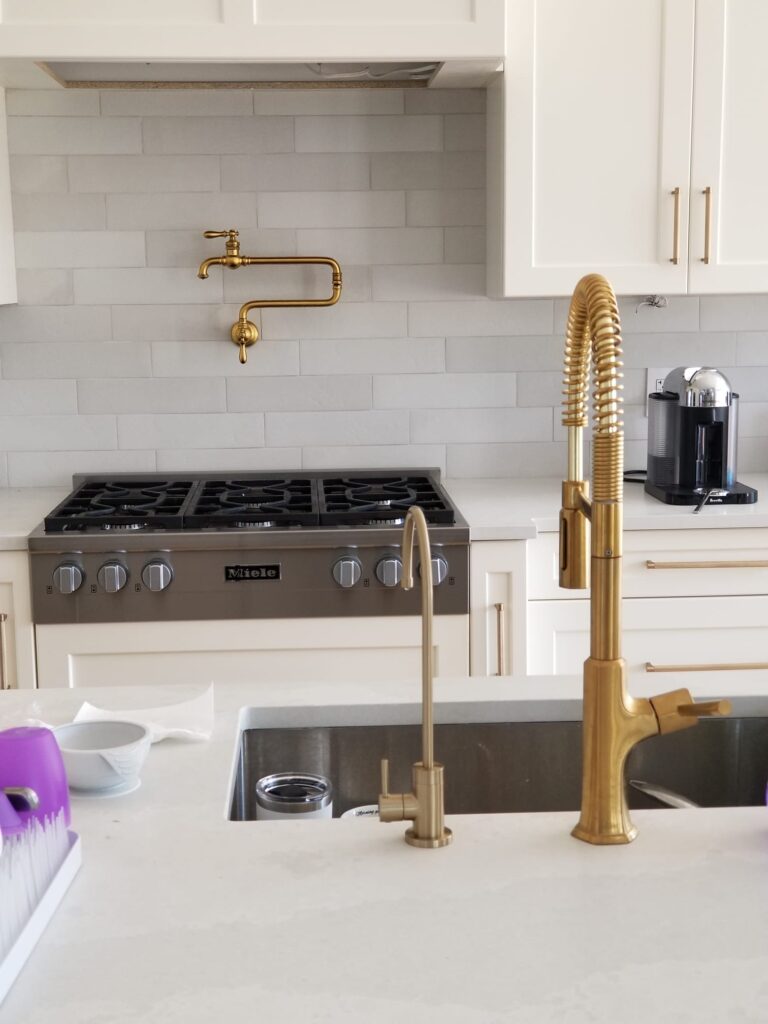Dishwasher Repair
A dishwasher is an essential appliance in modern kitchens, making daily chores faster and more convenient. However, even the best models can face problems over time. Knowing some basic repair tips can help keep your dishwasher running efficiently and can save you from costly repairs. Whether it’s dealing with common issues or troubleshooting major breakdowns, this guide provides practical advice for effective dishwasher repair.
Dishwasher Problems and How to Fix Them
Dishwashers can experience a range of problems, from minor issues to larger malfunctions. Here’s a look at common dishwasher issues and how to handle them.
Dishwasher Not Cleaning Dishes Properly
One of the most frequent complaints is when the dishwasher doesn’t clean dishes well. This can be due to clogged spray arms, blocked filters, or even improper loading. Cleaning the filters, removing food particles, and ensuring dishes don’t block the spray arms can help improve cleaning performance.
Water Not Draining from Dishwasher
If water is pooling at the bottom of your dishwasher, there may be a drainage issue. Check the drain filter, hose, and pump for any blockages. Clean the filter and ensure the hose isn’t kinked, which can restrict water flow.
Dishwasher Making Unusual Noises
Unusual noises can indicate a problem with the motor, pump, or spray arm. Check if any items are interfering with the spray arm’s rotation, and inspect the pump for damage. If the motor is the issue, it may need professional repair.
Dishwasher Door Not Closing Properly
If the door doesn’t close, it could be due to a broken latch or misalignment. Inspect the latch for damage and check that the dishwasher is level. Adjust the dishwasher feet if necessary to ensure a proper seal.
DIY Maintenance Tips for Better Dishwasher Performance
Regular maintenance can keep your dishwasher in optimal condition and reduce the chances of breakdowns. Here are some essential tips to maintain your appliance.
Clean the Filters Regularly
Filters catch food particles and debris to prevent them from clogging other parts of the dishwasher. Cleaning the filter every month can prevent buildup and ensure smoother water flow, enhancing cleaning results.
Inspect and Clean Spray Arms
Spray arms distribute water to clean dishes. Over time, the holes can get clogged with mineral deposits. Remove the spray arms and clean them with a soft brush to remove any buildup.
Use the Right Detergent and Rinse Aid
Using the correct detergent and rinse aid can improve cleaning results and prevent residue buildup. Ensure you use a dishwasher-safe detergent and consider adding a rinse aid to prevent water spots.
Check the Seals and Gaskets
The seals and gaskets around the dishwasher door keep water from leaking. Clean them regularly with a damp cloth to remove any grime or food particles. If you notice cracks, it may be time to replace the seal.
How to Troubleshoot Specific Dishwasher Issues
Different dishwasher issues require unique troubleshooting approaches. Here’s how to handle specific problems for a quicker fix.
Troubleshooting a Leaking Dishwasher
Leaks can be caused by faulty seals, clogged filters, or improper loading. Inspect the door seal, clean the filter, and ensure dishes don’t obstruct the door closure. If the problem persists, check the water inlet valve and hose connections.
Handling Dishwasher Odors
A smelly dishwasher can be caused by food debris and residue. Run a cycle with vinegar or baking soda to neutralize odors. Clean the filters, spray arms, and door seals to prevent odors from building up.
Fixing a Dishwasher That Won’t Start
If your dishwasher won’t start, check the power supply and door latch. Inspect the control panel for error codes, which can help identify the problem. Ensure the door is fully closed and the latch is functioning correctly.
Dealing with Cloudy Glassware
Cloudy glassware can be a result of hard water or using too much detergent. Reduce the detergent amount and use a rinse aid to prevent cloudiness. If hard water is the cause, consider adding a water softener.
Measures for Long-Lasting Dishwasher Performance
Prevention is key to extending the life of your dishwasher. Here are some practices to reduce wear and tear on your appliance.
Avoid Overloading the Dishwasher
Overloading can block water flow and reduce cleaning efficiency. Arrange dishes with enough space for water and detergent to reach all surfaces, especially around the spray arms.
Run Hot Water Before Starting the Dishwasher
Run hot water in your sink before starting the dishwasher. This ensures that the dishwasher fills with hot water from the beginning, improving cleaning performance.
Use Dishwasher Cleaner Regularly
Dishwasher cleaners are formulated to remove grease, limescale, and odors. Run an empty cycle with a cleaner every few months to keep the interior clean and smelling fresh.
Choose the Right Cycle for Each Load
Selecting the right cycle prevents excess wear and tear on your dishwasher. Use shorter cycles for lightly soiled dishes and intensive cycles only when necessary for tougher cleaning.
Frequently Asked Questions
What should I do if my dishwasher isn’t filling with water?
First, check if the water supply valve is open. Next, inspect the float switch, which can become stuck and prevent water from entering. If these steps don’t work, the water inlet valve may be faulty.
Can I use regular dish soap in my dishwasher?
No, regular dish soap is too foamy and can damage the dishwasher. Only use detergent formulated for dishwashers to avoid residue and prevent possible damage.
How often should I clean my dishwasher filter?
For optimal performance, clean the filter once a month. Regular cleaning helps prevent clogs, improves water flow, and reduces odor.
Why are my dishes coming out wet after the cycle?
If dishes are wet, the heating element may not be working properly, or the rinse aid may be insufficient. Ensure the heating element is functioning, and adjust the rinse aid setting if necessary.
How can I prevent my dishwasher from clogging?
Avoid putting large food particles on dishes before loading them. Clean the filter regularly and use dishwasher-safe detergents to prevent clogs.
Final Verdict
Regular maintenance and timely repairs can keep your dishwasher running efficiently for years. From addressing common issues to following preventive tips, each step ensures that your appliance operates smoothly. Basic repairs, such as clearing filters or unclogging spray arms, can often be done without professional help. However, for more complex issues, consulting a qualified technician is recommended. By staying proactive with maintenance and repair, you’ll ensure your dishwasher continues to serve your kitchen effectively.






